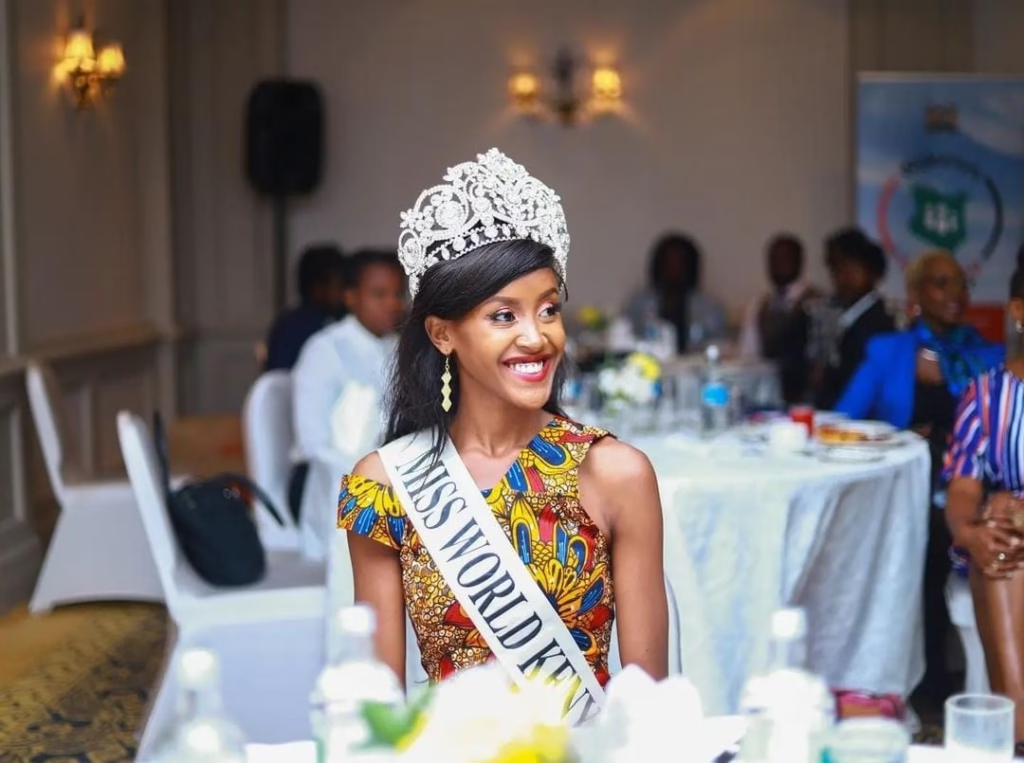
Participating in beauty pageants, while often perceived as a glamorous pursuit, can involve significant financial commitments. Aspiring contestants and their teams face a myriad of costs, including substantial entry fees, the expense of a diverse and extensive wardrobe, professional coaching for everything from poise to public speaking, and considerable travel expenses for auditions, training camps, and the main competition. Yet, despite these financial hurdles, the allure of the crown and the profound opportunities it presents continue to draw many young Kenyans into this competitive yet rewarding world.
Beyond the glitz and glamour, pageants in Kenya have evolved into powerful tools for social change, actively promoting positive values and serving as platforms for showcasing Kenyan talent, culture, and promoting social responsibility. They are not merely about beauty; they are about embodying ideals, inspiring communities, and contributing to national development.
One of the most prominent examples of a university-based pageant competition is Mr. and Miss University. Held annually, this event brings together participants from various Kenyan universities and colleges. Each institution holds its internal contest to select its Mr. and Miss representing that specific campus. The winners of these university-level pageants often go on to:
- Represent their university in national competitions: Gaining broader exposure and experience.
- Become ambassadors for various student-led and community-driven initiatives: Using their newfound platforms to advocate for causes important to their peers and society.
- Utilize their platforms to promote youth empowerment, mental health awareness, cultural preservation, and education: Addressing critical social issues with a powerful, influential voice.
The objectives of such competitions are multifaceted and deeply rooted in personal and societal development. They aim to:
- Promote talent and creativity: Contestants are encouraged to showcase a diverse range of skills, from spoken word poetry and musical performances to traditional dances and artistic expressions, highlighting the rich tapestry of Kenyan talent.
- Foster leadership: Pageants are rigorous training grounds that build confidence, public speaking abilities, and the capacity to inspire and lead. Participants learn to articulate their visions and take initiative.
- Celebrate culture and diversity: Through traditional attire segments, cultural dances, and discussions on heritage, pageants become vibrant celebrations of Kenya’s diverse ethnic groups and their unique traditions.
Encourage positive role models: Winners are expected to embody qualities of integrity, resilience, intelligence, and compassion, serving as aspirational figures for younger generations.
The structure of these competitions typically involves several key stages. It begins with rigorous auditions and grooming sessions, where potential contestants are evaluated on their potential and then guided through extensive training in etiquette, public speaking, runway walk, and personal development. This is followed by preliminary events that often include talent showcases, fitness challenges, and interview rounds, designed to narrow down the field and assess each contestant’s holistic capabilities. The climax is, of course, the grand finale, a spectacular event where the ultimate winners are crowned after showcasing their skills and personality before judges and a captivated audience.
Beyond the university circuit, Kenya boasts a robust national pageant scene, with several key aspects of pageantry contributing significantly to the nation’s cultural landscape:
The Miss Kenya pageant has been a prominent event since its inception in 1960. It serves as the official organization that sends Kenya’s representatives to globally renowned competitions such as Miss World, Miss International, Miss Earth, and Miss Grand International. Being crowned Miss Kenya is not just an honor; it is an opportunity to represent the nation on the world stage, showcasing Kenya’s beauty, intelligence, and culture to an international audience.
Miss Universe Kenya is a separate national pageant established in 2002. This competition specifically focuses on selecting a contestant for the prestigious Miss Universe competition, another avenue for Kenyan women to compete at an international level and amplify their voices on a global platform.
The Mr. World Kenya pageant provides a similar opportunity for men, allowing them to compete in the Mr. World competition and represent the country’s male youth.
Another significant pageant is the Face of Heritage Kenya. This pageant places a strong emphasis on celebrating Kenya’s diverse culture, traditions, and history. Its primary aim is to empower young leaders and preserve heritage, fostering a deep sense of pride in Kenyan identity. Pageants like Face of Heritage Kenya often incorporate community outreach programs and social initiatives, directly involving contestants in meaningful projects that benefit society.
Many pageants, including those with an international focus like Miss Kenya UK (aimed at Kenyans in the diaspora), are designed to develop young talent and provide platforms for showcasing skills. They offer unparalleled opportunities for international representation, allowing participants to network with global figures and gain exposure beyond national borders. Winning a major pageant can indeed open doors for international opportunities, such as modeling contracts, brand ambassadorships, and the chance to represent Kenya on a global stage, significantly boosting a contestant’s career advancement.
However, the journey is not without its opportunities and challenges. While pageants offer immense personal growth, exposure, and potential career pathways, they also demand immense dedication, resilience, and the ability to handle pressure and public scrutiny. Contestants often face intense competition, demanding schedules, and the emotional toll of constant evaluation. Yet, for many, the transformative experience, the skills acquired, and the potential to make a tangible difference in their communities far outweigh these challenges.
In essence, pageants in Kenya are more than just beauty contests; they are dynamic platforms that nurture talent, cultivate leadership, celebrate culture, and empower young individuals to become influential agents of positive change within their communities and on the international stage. They reflect the vibrant spirit and diverse potential of Kenya’s youth, continually evolving to meet contemporary needs while holding firm to their core mission of fostering excellence and social responsibility.